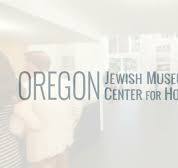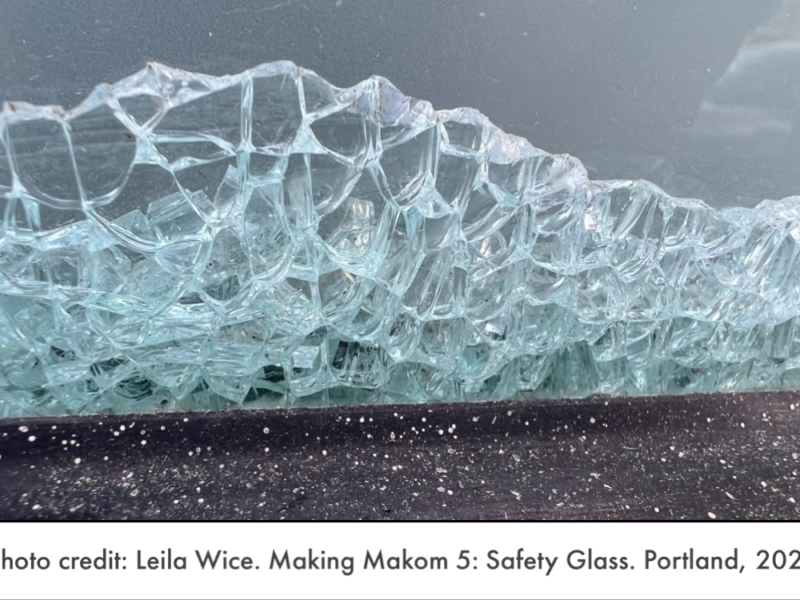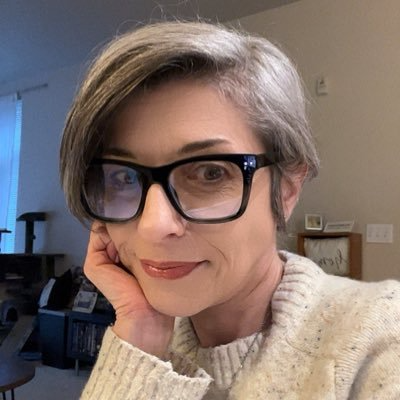“Everyone I saw in the sanctuary was either swaying to the music, clapping to the tune, nodding to the beat, and/or singing along. I cannot remember a Friday night service I enjoyed more or one where I felt as ‘moved’ towards starting the Sabbath. I actually was whistling the prayers and your music for the next couple of days,” says Norman Chusid, a member of Congregation Neveh Shalom.
Chusid is describing PDX Live, a bimonthly contemporary interactive Friday night Shabbat service spearheaded by Neveh Shalom cantor, Deborah Bletstein.
If this doesn’t sound like a typical kabbalat Shabbat service, that’s because it isn’t. Bletstein, who came to CNS in 2010, had wanted to create a contemporary Friday night service for several years, in the manner of Craig Taubman, a well-known contemporary Jewish musician/composer whose Friday Night Live CD and TV specials are changing the way many Jews experience Friday night services. While Bletstein acknowledges Taubman’s influence, she has distinctly different ideas about what kind of music she wants to present.
“I wanted to use Taubman’s context but not his music,” says Bletstein. “I wanted to run the gamut with diverse kinds of music, by taking the traditional Friday night prayers and giving them a gospel or reggae or calypso feel. There are all these interesting new territories to discover within the Friday night service.”
Bletstein found her way to the cantorate by way of Broadway, and brings her eclectic background in pop, Motown, rock, jazz and musical theatre to Neveh Shalom. She grew up in Detroit, and after college moved to New York City, where she became a member of Actor’s Equity and trod the boards of Broadway for four years. After attending her father’s Reform shul in Detroit, which featured contemporary Jewish liturgical music, Bletstein began to consider a different path for herself.
“I wanted to do something with my talent that could personally satisfy me, while bringing a lot of meaning to other people’s lives,” she explains.
As styles of worship change from clergy-led to more congregational participation, many congregations are creating these kinds of interactive services.
“Neveh was very receptive to this idea,” says Bletstein. “Today’s congregations want to participate, and Neveh Shalom is a singing congregation. PDX Live is designed to excite and engage people and get them to participate. I thought with my background I’d be able to execute this vision, and Neveh Shalom has committed the resources to do it.”
Bletstein launched PDX Live last May, with the help of Ed Kraus, a member at Neveh Shalom and a local musician, radio host and concert producer.
“Ed Kraus has been my right hand for all things musical in the synagogue,” notes Bletstein. “He’s my main collaborator; to have a congregant who shares your vision of bringing quality music to the synagogue, whether it’s music we build or guest artists, is really special. I trust Ed implicitly.”
Kraus introduced Bletstein to Klezmocracy, a local jazz/fusion band, and Bletstein, Kraus and the band members quickly created a dynamic partnership.
“It was instant chemistry with me and Ed and the band,” Bletstein recalls. “I pioneered the vision, but the collective group helped build it. It’s a collective, creative, collaborative experience, and the end result is I have a band full of people who are equally excited about this project and want to continue make this a successful program. It’s not just a gig for them; they’re part of the creative process.”
Kraus, who plays clarinet and saxophone in PDX Live, agrees. “I think the band appreciates being asked to be part of the creative process and being let into a world of Jewish prayer that wasn’t initially familiar to them.” Bletstein adds, “They have this sort of magical connection to Jewish music, and they’ve become very drawn to it.”
Klezmocracy’s drummer, Joe Janiga, has been intrigued by Jewish music and ritual for many years. Janiga has played his share of b’nai mitzvot, and seeing young Jewish people assume the responsibilities of adulthood within their Jewish communities was a profound experience for him.
“I’d never witnessed something so heartfelt and deep, and it’s neat to now be an integral part of these services and getting the energy flowing.”
While the music for PDX Live may be new for congregants, the structure of the service is not.
“People will get the traditional prayers, but then they go on this journey with us through all of these different genres of music,” says Bletstein.
Part of the creative interaction between Bletstein and the band is the inherent flexibility of the service format. “PDX Live is not a set thing; we’re constantly challenging ourselves with new music.” Currently, the group is putting together an arrangement of Ma Tovu with a Moroccan beat. “We’ll see how it turns out,” says Kraus. “We often don’t know how things will sound until the final rehearsal.”
Members at Neveh Shalom have embraced the new format wholeheartedly.
“It was the best Friday night service I have ever attended,” says David Honigstock.
Trudi Stone adds, “The music and your voice rose to heaven and I felt my prayers went with you. It was not only beautiful to listen to but very spiritual. I hope we see this type of service again.”
Sheila and Bruce Stern concur. “We had no idea prayers could sound like that.”
Elizabeth Schwartz is co-host of the Yiddish Hour on 90.7 FM KBOO Community Radio and a freelance writer living in Portland.





